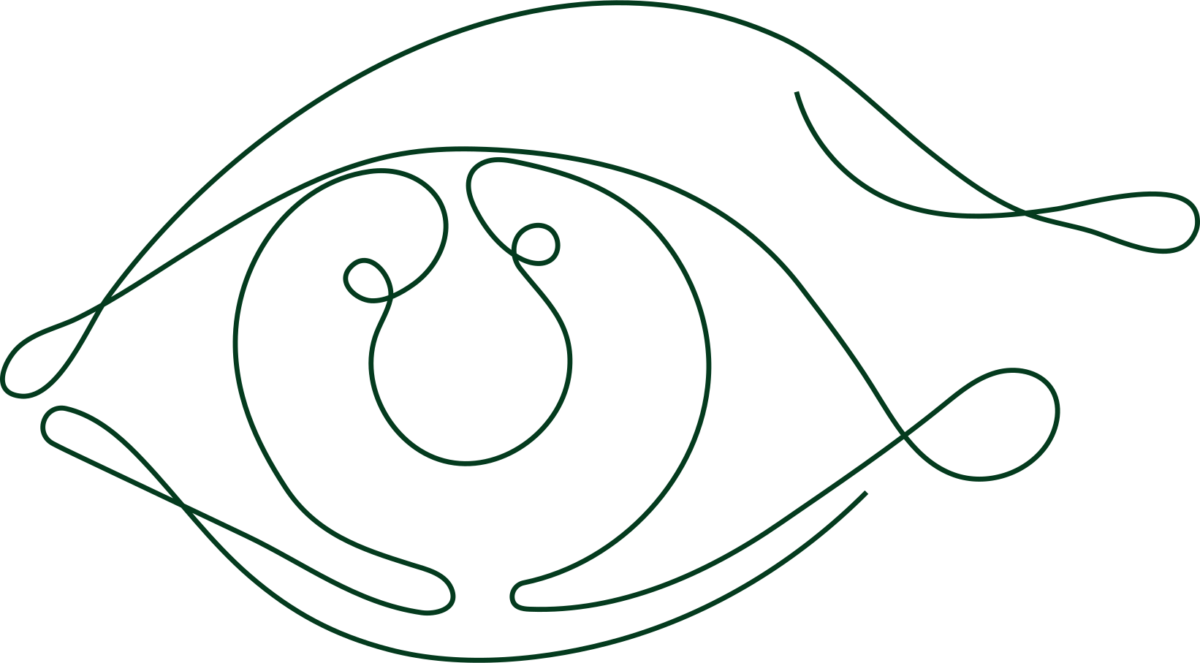EMDR Therapy in St. Petersburg
You remember what happened, but you’re ready to stop reliving it.
The past doesn’t just stay in the past. Trauma lingers in the body, shows up in yourrelationships, and steals your peace. EMDR helps you process memories that won’t let go,allowing you to finally move forward. You don’t have to relive everything. You just have to start.


What Is EMDR Therapy and How Does it Work
EMDR stands for Eye Movement Desensitization and Reprocessing. That might sound clinical, but it’s deeply human. This therapy helps the brain process trauma and distress in a way that creates relief and emotional freedom.
During EMDR, your therapist guides you through bilateral stimulation, often using eyemovements, tapping, or sounds, while you recall a memory. You don’t need to explain everydetail. You stay grounded in the present while your brain begins to resolve the past.
The goal is not to erase the memory. It’s to remove the emotional charge that keeps triggering you. With each session, the memory can lose its grip, and you can feel safer in your own body again.
What Can EMDR Therapy Treat?
EMDR therapy is a powerful option for anyone holding onto pain that still feels too close.
Whether it’s from a single event or a lifetime of experiences, EMDR can help you find relief.
EMDR is effective for:
- PTSD and trauma from accidents or assault
- Complex grief and unresolved loss
- Childhood emotional neglect or abuse
- Phobias and irrational fears
- Panic attacks and anxiety
- Medical trauma or chronic pain
- Flashbacks or intrusive thoughts
- Birth trauma or postpartum distress
- Sexual, physical, or emotional abuse
- Body image struggles and shame
- Dissociation or emotional numbness
- Low self-worth and internalized criticism
You don’t need to wait for things to get worse. EMDR meets you where you are.
Benefits of EMDR Therapy
Relief doesn’t have to take years. EMDR offers a focused, structured way to move through the
stuck places and start feeling like yourself again.
EMDR can help you:
Emotional Balance
Reduce emotional triggers and panic responses.
Restful Sleep
Sleep better and feel more grounded.
Body Connection
Reconnect with your body without fear.
Emotional Release
Release guilt, shame, or self-blame
Mental Clarity
Improve focus, confidence, and daily function.
Present Living
Stop reacting to the past and start living in the present.
You don’t have to carry old pain forever. EMDR helps lighten the emotional load so you can
move forward with clarity and calm.
Licensed EMDR Therapists Near Me
Your licensed therapists are trained in both traditional talk therapy They understand how to balance supportive conversation with the calming effects of nature and motion.

Nicole Wilson
Nice to meet you!
My name is Nicole Wilson
Licensed Mental Health Counselor (LMHC), Certified EMDR Therapist
I approach therapy from a relational perspective. I believe that we are shaped by our families, and continue to be shaped by our life experiences and the environment around us.
I work in St. Pete – Downtown
My hourly rate is: $185 for individuals and $235 for couples
My specialties are:
Marriage & Relationship issues, Divorce Recovery, Women’s Issues, Anxiety, Parenting Issues, Life Transitions, Certified in EMDR, Certified in Relational Life Therapy, Brainspotting
Let’s get to know each other!
I approach therapy from a relational perspective. I believe that we are shaped by our families, and continue to be shaped by our life experiences and the environment around us. Making connections, learning and healing from our past experiences is a pathway forward to creating a more fulfilling future. I work to help my clients do just that in order to develop better relationships with themselves and with others. I am a Certified EMDR Therapist and also trained in Accelerated Resolution Therapy (ART). I am certified in Relational Life Therapy and trained in the Gottman Method, an evidence-based approach to couples therapy.
My goal is for individuals and couples to emerge from crisis stronger, wiser, and with hope as we work together through the counseling process. Life’s challenges can provide opportunities for personal growth and increased understanding. Here you will be met where you are on life’s journey.
It is an honor and a gift to walk alongside clients through their most difficult journey, holding space for them and helping guide them toward the best version of themselves, living their best life. I am a collaborative therapist and strive to meet clients where they are each time they walk through the door, working at their pace in a safe and welcoming space where individuals and couples can work through some of their toughest challenges and concerns.
A bit more about me…
I received my Master of Arts degree from the University of South Florida. I completed my internship at Suncoast Center for Mental Health and The Tampa Jewish Family Center. I have experience working in a private setting and in Community Mental Health. Prior to my work as a Licensed Mental Health Counselor, I worked in Human Resources, as a School Administrator for a private Montessori School, as well as being a mom raising 2 amazing teenage boys.
The variety of my life and work experiences enrich my work as a clinician and allow me to connect with a wide variety of people. My areas of passion include working with trauma, life transitions, parenting and relationship issues.
My Fun Facts:
- As an only child in a Military Family, I had the amazing opportunity to live in the Philippines and Germany growing up and traveled to many beautiful countries. This unique experience has helped me be open-minded and accepting of others. In addition, it has helped me be more flexible and enjoy new experiences.
- I love nature and enjoy being outside. Connection with nature grounds me; it is in nature where I find peace.
- As a registered yoga teacher (RYT-200) I enjoy subbing classes in my free time. The connection between the mind, body, and soul is critical in healing and finding a sense of inner peace and well-being. I believe our body holds our stories, and yoga helps us understand and accept those stories and have the courage to change the outcome.
- I have a thirst for knowledge and am passionate about learning, especially when it comes to mental health and yoga. I am happy to spend hours reading, e-learning, or heading to a seminar. Call me a nerd, but it fills my cup!

Madison Magnus
Nice to meet you!
My name is Madison Magnus
Licensed Mental Health Counselor (LMHC)
Hi there! I’m a Licensed Mental Health Counselor passionate about helping children, teens, young adults, and adults navigate life’s challenges with warmth, empathy, and gentle encouragement. I am an EMDRIA-certified EMDR therapist and use this evidence-based approach to support healing from trauma, anxiety, grief, phobias, relationship struggles, and major life transitions.
I work in St. Pete – Downtown
My hourly rate is: $185
My specialties are:
Trauma, anxiety, depression, grief, self-esteem, social anxiety, and relationship concerns Children, adolescents, teens, college and graduate students
Let’s get to know each other!
Originally from Ohio, I’ve lived across the Midwest and Carolinas before settling in sunny Florida. I earned my Bachelor of Science in Psychology in South Carolina, focusing on research in clinical depression and brain systems, particularly the vestibular system. I went on to complete my Master of Science in Clinical Mental Health Counseling and Psychology in the Tampa Bay area.
My journey to becoming a therapist began in childhood as I witnessed loved ones face mental health and substance use challenges. Those early experiences sparked my drive to understand, learn, and eventually dedicate my career to helping others. They also taught me to sit with discomfort, hold space for hard emotions, and connect authentically with people moving through adversity.
A bit more about me…
Therapy with me is collaborative, flexible, and rooted in person-centered values. I see you as the expert in your life—I’m here as a guide and partner in the process. Sessions might include EMDR, CBT, ACT, DBT skills, solution-focused strategies, or creative interventions like play therapy and art activities, always tailored to your unique needs.
I believe therapy can be a safe place to be open, silly, reflective, or unapologetically yourself. Starting therapy takes courage, and while change isn’t always linear, it’s a privilege for me to walk alongside you in your growth and healing.
My Fun Facts:
1. I enjoy reading, watching documentaries, staying active through fitness and yoga, music and going to concerts, and exploring new places through travel- Ireland is the next spot on my bucket list!
2. When I am not in session I am likely hanging with my puppy (Addy) and my three cats (Milo, Ozzy, and Margo), reading psychological thrillers, cooking, or enjoying the Florida sun.

Kiesa DeSimone
Nice to meet you!
My name is Kiesa DeSimone
Licensed Mental Health Counselor (LMHC)
My passion lies in creating a safe space for you to share openly and deeply, and to create an environment where you can begin the process of healing and growth. My personal approach to counseling is catered towards the belief that when my client is seen and heard, meaningful and positive change can happen!
I work in St. Pete – Tyrone
My hourly rate is: $185
My specialties are:
Trauma, Self-esteem issues, Life transitions, Grief and loss, Anxiety, Depression, LGBTQIA+ affirming, Parenting and relationship issues, Aging concerns.
Let’s get to know each other!
My passion and gifting lies in creating a safe space for you to share openly and deeply, and to create an environment where you can begin the process of healing and growth. My personal approach to counseling is catered towards the belief that when my client is seen and heard, meaningful and positive change can happen!
As a licensed mental health counselor, we can work together in a collaborative effort to give you the tools, insight and empowerment to create something different in your life. My style has been described as soothing, comforting and compassionate, and I draw on this to create a place where you can feel safe to be gently challenged and feel capable of recognizing your own strength. I utilize an eclectic and holistic approach to therapy, including EFT (emotion focused therapy), TFCBT, (trauma-focused cognitive behavioral therapy), motivational interviewing and DBT (dialectical behavior therapy). I am also trained in EMDR, (eye movement desensitization and reprocessing) which I utilize in sessions often to reduce triggers and provide healing from trauma. Part of my sessions will include exploring themes in your past that might be influencing negative beliefs about yourself, in the hopes that if you understand where your beliefs come from, it can help to facilitate compassion for yourself and bring positive change. I truly believe that understanding how to love yourself can lead to amazing things.
I view our session together as your time, and I stress the importance of being a consistent presence to be able to help you to share in the way that meets your needs. I may ask you a question at the start of our session, like “What feels important to talk about today?” Therapy can be intimidating, and it can be a huge step for someone to seek help, and I am honored that I can be a part of the process of your journey!
A bit more about me…
I received my bachelor’s in Psychology from the University of Northwestern, and then went on to complete the first two years of my master’s in clinical counseling at Denver Seminary, and the last half at Argosy University. As a licensed mental health counselor, I have experience in helping individuals including pre-teens, adolescents, young adults and older adults, couples and families in various settings. I have worked in case management and counseling in an addictions setting, as well as three years in a community mental health setting. I had the honor of going into peoples’ homes for therapy for several years, which gave me a deeper understanding of what my clients were going through in their own environments. Being in the community mental health setting has increased my understanding of complex and traumatic issues, and attempting to understand external and internal factors that are influencing behavior and thinking patterns. My areas of passion include trauma, self esteem, life transitions, grief/loss, anxiety, depression, LGBTQIA+ Affirming, parenting and relationship issues, and aging concerns.
I am excited to start this process of healing with you, and I feel blessed to be able to share in growth and change in your life.
My Fun Facts:
- I am a proud mom of four adult children, and they live all over the country, including Colorado, Kansas and Florida. They are all so unique and special, and I enjoy visiting them as often as I can.
- I “dated” my husband in Colorado in middle school, (which consisted of smiling at each other across the hall and briefly holding hands), and then I broke up with him in the cafeteria. Twenty five years later we discovered each other again, and now have been married for five years.
- I love going to the beach as often as I can, and find it incredibly soothing. I enjoyed the mountains in Colorado Springs, CO, where I grew up, but I feel that the beach gives me the same feeling of peace.
- I enjoy music very much and sometimes use it in my therapy sessions. If you look at my playlist right now it ranges from pop to heavy metal.
- I have two very cute and naughty dogs – Remington the weiner dog and Winston the Great Dane. They bring so much of joy to our family.

Emily Tripp
Nice to meet you!
My name is Emily Tripp
Licensed Mental Health Counselor (LMHC)
My passion is assisting my clients by helping them repair their relationships with themselves and others. I focus on empowering individuals to express their emotions through various outlets, communicate their needs, and find their purpose.
I work in St. Pete – Downtown
My hourly rate is: $185 for individuals and $235 for couples
My specialties are:
Stress Management, Anxiety & Mood Disorders, Self-Esteem, ADHD, Emotional Regulation, Life Transitions, Trauma, Addiction, Couples/Marital Therapy, LGBTQIA+
Let’s get to know each other!
I’m a Licensed Mental Health Counselor with a Graduate Certificate in Marriage and Family Therapy. I specialize in various therapeutic modalities, as well as talk therapy, to improve the connection between emotions, thoughts, and behaviors. Before private practice, I worked in multiple settings, including inpatient, outpatient, and holistic wellness counseling centers.
My passion is assisting my clients by helping them repair their relationships with themselves and others. I focus on empowering individuals to express their emotions through various outlets, communicate their needs, and find their purpose.
A bit more about me…
With the increasing dependency of technological advancements, society is moving away from the ability to have meaningful connections. Studies have shown correlations with higher anxiety, depression, and attention/comprehension affiliated issues related with increased screen time. Consequently, this results in increased isolation, imposter syndrome, the need for instant gratification, and low feelings of self-worth. I strive to help people achieve their goals of finding a sense of purpose, boosting confidence, and letting go of stressors that have consumed them.
I make clients feel comfortable with my nontraditional approach to counseling by using a range of modalities. In addition, I would consider my personality more relaxed while also knowing when to assert recommendations. In a time where individuals struggle to feel validated, it is my goal to create a safe space to help clients feel that they can trust again. By helping access the inner strengths from within, we can work together to increase a sense of awareness, connection, and ability to foster mindfulness. You are not alone. Integrating various healing components to the mind, body, and spirt can bring forth a sense of long-lasting fulfillness.
Working with clients of all ages and backgrounds grants me the experience to help tackle issues as they occur. Life transitions can be unpredictable so whether switching schools, divorcing, job changes, or death; these parts of life can promote deeper meaning. A common denominator expressed within various clients tends to be similar; feeling stuck, high expectations, unresolved trauma, stress or conflict, and shame. Nevertheless, there is an opportunity to help you heal again and uncover the potential root of the problems.
I hold additional trainings in EMDR (Eye Movement Desensitization and Reprocessing) trauma therapy and a Graduate Certificate in Marriage and Family. I studied systemic issues throughout schooling in addition to individual therapy. I am a current member of the Suncoast Mental Health Counseling Association and the International Honor Society in Psychology. The alternative modalities I have experience with conducting individual/group therapy contains music and art therapy. These can be phenomenal tools to help uncover what the mind can’t fully articulate or extract. Lastly, I utilize both Eastern and Western philosophies to accommodate an extensive range of multicultural and eclectic backgrounds. I look forward to working with you!
My Fun Facts:
- I love music and believe it has many healing benefits. In my past time, I enjoy attending music festivals and concerts of all genres. My favorite types of music are alternative rock, metal, rap, flamenco, smooth jazz, and dance.
- I have been a fitness enthusiast for over ten years. I enjoy all things strength training, running, high intensive interval training (HIIT), skateboarding, biking, and kickboxing. My heart will always be with strength training and running.
- I have two amazing daughters– aged five and one-year. They are my purpose and meaning for life and am so grateful to be their mommy.
- I received my Master of Arts degree in Rehabilitation and Mental Health Counseling from the University of South Florida in Tampa. I graduated with my Bachelor of Arts degree in Psychology from the University of South Florida in DTSP. (Go Bulls!) I attended St. Petersburg College for my Associate of Arts at the Gibbs campus.

What Our Clients Say
EMDR Therapy Near Me
Looking for trauma therapy near you? We offer in-person EMDR sessions in:
Prefer online sessions? We provide secure, virtual therapy throughout Florida. Same-week
availability for most clients.

